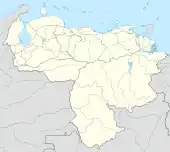pais
English
Etymology
From Old French, equivalent to French pays (“country”).
Pronunciation
- IPA(key): /ˈpeɪ/
Noun
pais (uncountable)
Usage notes
- A trial per pais is a trial by the country, i.e. by a jury. Matter in pais is matter triable by the country, or jury. Things which happen in pais happen 'in the country', rather than in a formally constituted court.
Part or all of this entry has been imported from the 1913 edition of Webster’s Dictionary, which is now free of copyright and hence in the public domain. The imported definitions may be significantly out of date, and any more recent senses may be completely missing.
(See the entry for “pais”, in Webster’s Revised Unabridged Dictionary, Springfield, Mass.: G. & C. Merriam, 1913, →OCLC.)
Dutch
Etymology
See the main lemma.
Pronunciation
- IPA(key): /pɑɪ̯s/
Derived terms
- pais en vree
French
Verb
pais
- inflection of paître:
- first/second-person singular present indicative
- second-person singular imperative
Anagrams
Galician
Related terms
Further reading
- “pai”, in Dicionario da Real Academia Galega (in Galician), A Coruña: Royal Galician Academy, since 2012
Istriot
Alternative forms
- paìs
Norman
Alternative forms
- peis (Guernsey)
Etymology
From Old French, from Latin pīsum, from Ancient Greek πίσον (píson).
Pronunciation
Audio (Jersey) (file)
Synonyms
Derived terms
- pais au fou (“bean crock”)
- pais brantcheur (“runner bean”)
- pais d'mai (“French bean”)
- pais lupîn (“lupin”)
- pais-flieur (“sweet pea”)
- pouque à pais (“beanbag”)
Old French
Pronunciation
- IPA(key): /ˈpai̯s/
Noun
pais oblique singular, f (oblique plural pais, nominative singular pais, nominative plural pais)
Descendants
Etymology 2
From Late Latin pāgēnsis, which is derived from Latin pāgus (“country”).
Alternative forms
- païs (scholarly transcription)
Pronunciation
- IPA(key): /paˈis/
Noun
pais oblique singular, m (oblique plural pais, nominative singular pais, nominative plural pais)
Usage notes
- The vast majority of facsimiles of manuscripts use pais to mean peace and païs (with a diaeresis on the i) to mean country. While this avoids ambiguity this distinction is not found in the original manuscripts which do not contain diaereses at all.
Piedmontese
Pronunciation
- IPA(key): /paˈiz/
References
- AIS: Sprach- und Sachatlas Italiens und der Südschweiz [Linguistic and Ethnographic Atlas of Italy and Southern Switzerland] – map 817: “il paese” – on navigais-web.pd.istc.cnr.it
Portuguese
Pronunciation
- (Brazil) IPA(key): /ˈpajs/ [ˈpaɪ̯s]
- (Rio de Janeiro) IPA(key): /ˈpajʃ/ [ˈpaɪ̯ʃ]
- (Portugal) IPA(key): /ˈpajʃ/
Usage notes
- Not to be confused with país.
Romansch
Etymology
From Vulgar Latin *pēsum, from Latin pēnsum.
